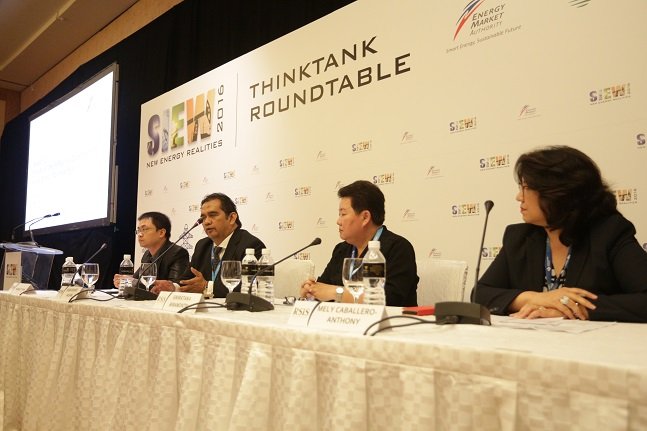
By Terh Yee Jiunn
Ensuring nuclear safety is the responsibility of all countries, said experts at a roundtable hosted by the S. Rajaratnam School of International Studies (RSIS) on “Nuclear Safety and Cooperation in ASEAN” at the Singapore International Energy Week (SIEW).
Dr Tatsujiro Suzuki, Vice Director of the Research Center for Nuclear Weapons Abolition (RECNA) at Nagasaki University, said that countries in a region should work together to share information and develop solutions for the region – noting that effects from the Fukushima accident was still present both on-site and off-site after five years. This was in view of ASEAN’s increasing interest in nuclear energy, with a number of newcomer countries having no prior experience in operating nuclear power plants.
Among them, Vietnam is taking the driver’s seat with clear plans to build nuclear power plants, said Dr Hoang Sy Than, Deputy Director of the Department of Planning and R&D Management at the Vietnam Atomic Energy Institute (VINATOM). Vietnam is also taking active steps to promote regional and international cooperation. The country’s first nuclear power plant in the Ninh Thuan province is expected to be ready for operation in 2028/2029.
Within ASEAN, nuclear safety and regional cooperation remain key priorities. Platforms, such as the ASEAN Nuclear Energy Cooperation Sub-Sector Network (NEC-SSN) and ASEAN Network of Regulatory Bodies on Atomic Energy (ASEANTOM), have been set up to facilitate discussion on nuclear issues between leaders and regulators of ASEAN member states.
One such issue is on public acceptance. Suzuki said that restoring public trust in nuclear after Fukushima has been a major challenge for the Japanese government – with a poll indicating that 70 per cent of respondents did not support the re-start of existing nuclear power plants.
Transparency, clarity and accuracy in communicating with the public and conveying information is crucial, said the panellists in response to questions on what was being done by the respective countries to assure the public on the safety of nuclear power plants.
Citing data from the Paul-Scherer Institute on deaths per unit of electricity generated, Shah Nawaz Ahmad, Senior Advisor, India, Middle East and South East Asia, World Nuclear Association (WNA), said that nuclear energy is by far the safest form of electricity generation.